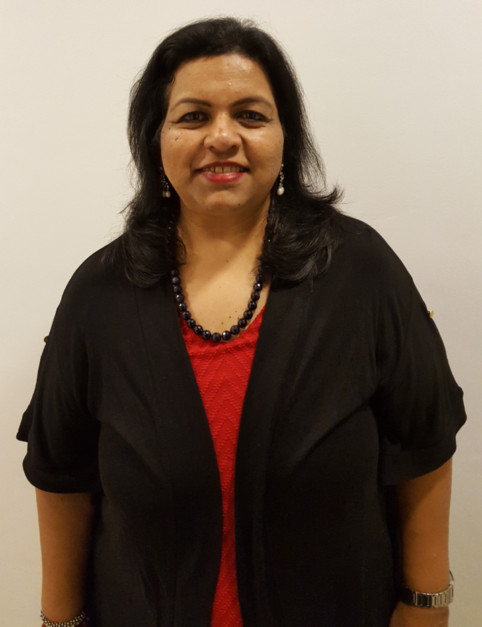
Dubai
Rema Menon, has worked with students in the UAE for years, counselling and helping them deal with issues such as low self esteem and depression, and training them to achieve their dreams. A global authority in the field, she has helped countless young people cope with the pressures of the education system. The Director of Counselling Point
talks to Gulf News about the importance of students finding themselves.
Gulf News: In your role as a counsellor, how often do you come across stressed out students? And what are the causes for it?
Rema Menon: I see quite a few students who are stressed out. Some even lie and hide their marks because they do not want to disappoint their parents. In lower grades, a student may have been a topper with high scores but with the academic load becoming more demanding and increasingly challenging, he or she cannot cope or bring the excellent grades that they once brought home.
Parents constantly tell me, “He/she is capable of much more. Even his/her teachers say that.” If students are unable to perform well academically, they use different coping mechanisms. Some lie, some project a ‘don’t care’ attitude, some feel a sense of shame, some crumble under the pressure, some hide under the blanket called laziness, while yet others drop out.
Unrealistic expectations from parents can impact a student’s academic process. We constantly identify a child’s potential by his/her marks. Marks are not the only drivers of success.
I often come across students who move out of the Indian curriculum to IB or British curriculum schools. I also see a lot of students who after completing their IGCSEs (Grade 11 in British curriculum) move to undertake a Foundation programme at University rather than stay and complete their A levels as it is much more demanding academically.
I recently had a teenager refered to me, who had not been able to clear his exam. When I asked him to describe himself in three words or tell me about himself, all he could talk about were his marks and failure at exams and how he was a disappointment to the family. This was really sad.
The current education system – does it truly educate children or just promote rote learning?
While tests and exams are tools used to assess content learnt, it is not always a foolproof method to measure a student’s capability. The Indian board exam results are used as benchmarks to measure learning outcomes.
Universities and colleges often grant ‘conditional offers’ and the student is given an unconditional acceptance only once he/she meets the conditions set by the institution. This definitely causes stress in students, especially if they fail to meet the conditions set.
Students whether from an Indian curriculum school or any other curriculum are under tremendous pressure as the final exam results play a crucial role in determining his/her higher education choices. Well meaning parents, extended family and teachers set high targets, and some students cannot cope with the stress. While expectations and some level of competition is good to motivate and highly driven students rise to the challenge, some young adults find it overwhelming.
The Indian education system in the past did place emphasis on rote learning but now it has shifted attention to a more application oriented format. In that sense it does educate children.
Does the excessive amount of homework in any way or manner help young people in the future?
Excessive homework will not help in the future, but if teachers make homework assignments interesting and engaging, the lessons learnt will stay with the student long after he or she leaves school.
What impact, do you think, is there on the psyche and development of a child overburdened by school work these days?
Each child is unique and so are families. It is incorrect to assume that all children are overburdened by school work and that their psyche is impacted. Thankfully, there are also parents who are quite ‘chilled out’ and encouraging.
The child overburdened by school work, does not perform or get the marks. he or she will feel inadequate or suffer from low self esteem. The family ... extended fa,mily, friends, all look at a child in terms of the marks he or she secures rather than the personality. It definitely impacts their world view and ability to aspire for higher goals.
Are the current syllabi relevant to the environment that the children will be part of as the workforce?
After years of protests, various discussions and feedback from all stakeholders, education systems are trying to change and adapt its offerings to suit the needs of the changing world. The CBSE from India, for example, is trying to make its curriculum application oriented rather than remain focused rote learning. The system of assessment too has been changed. However, there is ample scope for further improvement.
The education material is relevant but a lot of changes can be brought about, along with constnatly upgrading to keep pace with the technological world.
What do you believe needs to be changed in the education process? And why?
In my opinion, more needs to be done to make it relevant, current, interactive and interesting. Our youth, the ‘Google-generation’ have easy access to information. Being tech savvy, their style of learning is also very innovative and internet driven.
Our teachers need to undergo refresher courses and be equipped with the tools necessary to make learning not just ‘exam centric’ but knowledge based. We’d need to use blended learning, identify gifted and talented students as well as those with special learning needs and make the knowledge imparted fun, interactive and engaging.
Inclusive education is important, and we need to help our teachers with the skills needed to facilitate this. Learning styles also differ and we need to be mindful of that.
Apart from this, we need to introduce more vocational courses for students who prefer the practical, hands-on approach rather than purely academic.
Creativity, community engagement, sports, travel, leadership initiatives, extracurricular activities and internships should be encouraged, The life skills young adults get through participation in such endeavours will not only impact them as individuals but the community as a whole.
Overly high expectation in extracurricular pursuits (by parents/mentors) may also cause undue pressure and impact performance. Once pleasurable pursuits may become a chore, or a source of stress. Moderation is key.
What advice would you give students/pupils and parents to cope with the education system?
Young people are all the time told to find their passion. This elusive thing called ‘passion’ may not dawn on all young people at the same time or on the threshold of their graduation from high school. Many a times I see young adults who are burdened by the fact they have not ‘recognised their passion’.
I would like students to work on collaborative projects, engage in dialogue, participate in finding solutions to issues in their schools or their communities, dabble in sports, join book clubs, explore an interest or take up a hobby.
I’d like them to get off the laptop, the never ending stream of social media, serial watching and being engrossed in fantasy while the world is passing by.
For some, the demands education make on their time is time that they’d rather use to live in their world of make believe. If learning were more fun, we’d find more students becoming involved and ready to take responsibility to explore their ‘elusive passion’ and make a tangible difference in the world.









